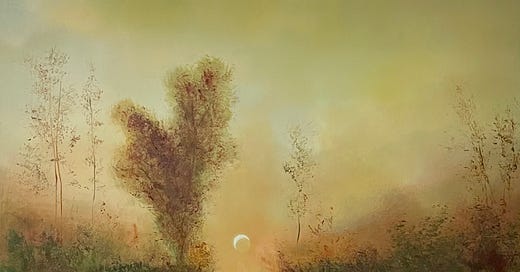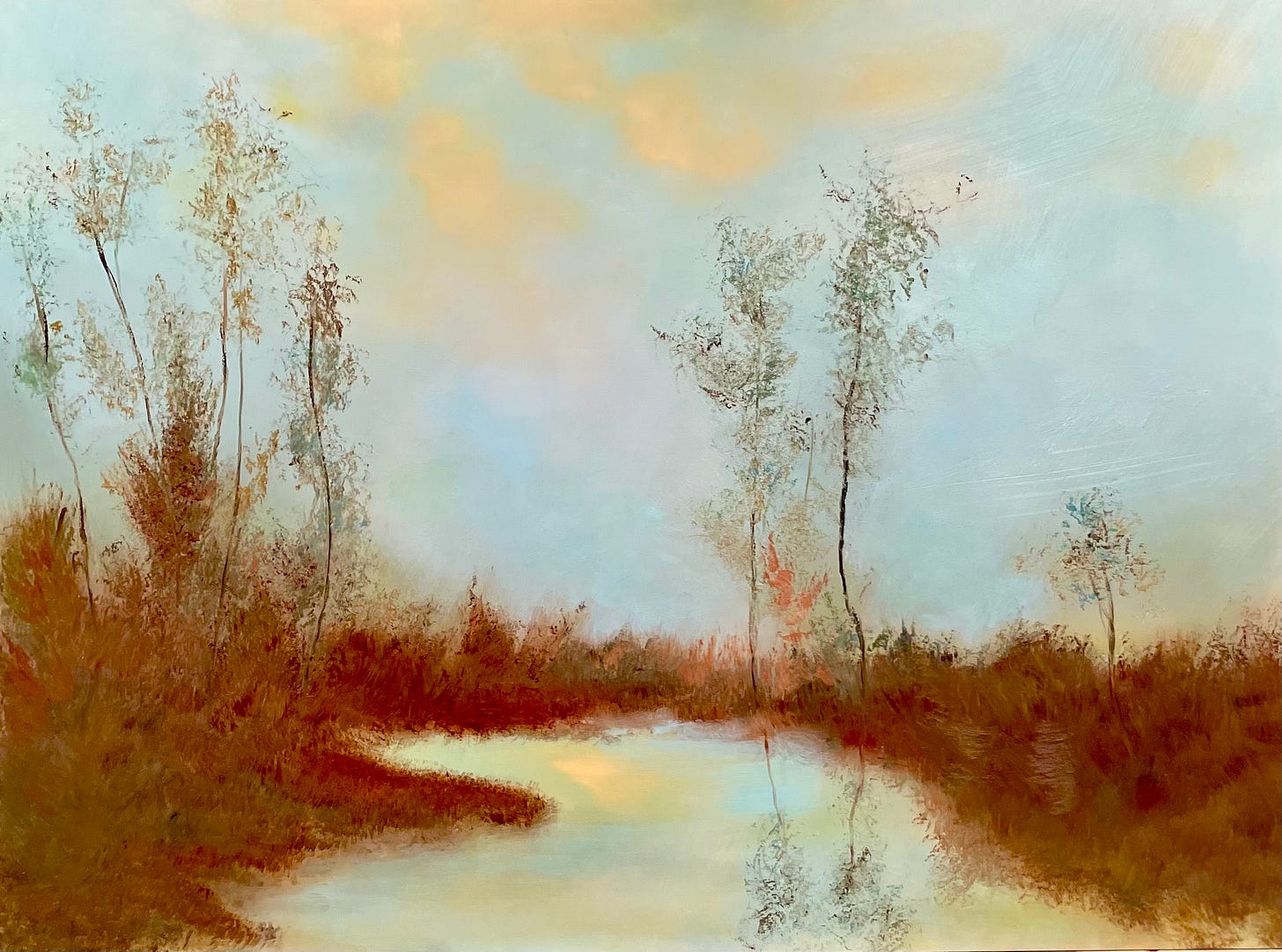I find myself musing lately on a phrase that I sometimes hear, “If this (fill in the blank) were to happen, I could die happy,” or I feel so wonderful, if I were to die now, I would die happy. It’s a phrase I have used myself, or rather, experienced on a few rare occasions. It is a clear, distinct knowledge; the feeling that something important has been completed.
I am curious about the certainty that it might be possible to die happy when something significant has be accomplished, or when we have reached fulfillment. It is as if life’s purpose could be found and completed. This completion would be of such a nature that it would transform a fear of death into a sense of peace. I am interested in both the sensation of completeness and our apparent ability to recognize it. And if we can recognize it, can we articulate it in advance and thereby facilitate our ability to reach such a peace in our lifetime?
Recognize is related to the word recollection. Socrates felt that to come to know is to recollect a truth that already lies within us. I think we have all of us had the sensation, both wonderful and mysterious, that we have come upon a familiar state of being, one that has always been within us, maybe hidden, which, for whatever reason, or series of events, becomes revealed to us and we can finally embody it. I remember, upon falling in love with the man who would become my husband, feeling as if I had come home. The kind of recognition I am attempting to describe is like this; an immediate knowledge and certainty-a strong intuition that bears no denying.
Deja vu resembles this sensation as well. A sense of having been in a place before, and knowing it well, as if it were the inner psychic state laid out before us as a landscape. When I first visited the Puget Sound, with the mountains surrounding, I knew that this was the landscape of my heart. I felt both wonder and a sense of being at home in boundlessness. The correspondence between the light flickering on snow and water and my own inner feeling of joy just clicked into place as if it had been waiting to match up.
In painting, too, there can be this sort of recognition. You see when a line is “right” and when it is wrong-following some guide that is both familiar and strange, but almost always certain. Who’s voice is this? Should we call it ours? If it is ours, surely it differs from our usual voice.
But going back to dying happy, I want to bring in one of my favorite friends from ancient times, Hakuin. He was a Buddhist famous for instructing his students to Die before you die! When I first heard this phrase, I understood it immediately. To die before you die is to let go of all attachment. If you die before you die, you are calm, but also, perhaps counter-intuitively, able to experience life with great freedom and joy. When you are released from all expectations each moment is a gift. No longer tormented by an inner narration of good and bad, you are instead the recipient of awe and wonder. Die before you die so that you can truly live.
I am curious, too, about my own interest in Tonalism.
Sometimes I feel like the little moons and their reflections are almost tongue in cheek representations of a sentimental vision. But I have painted several so far, and I don’t think I am done yet. These landscapes, shown to us first by masters like James McNeil Whistler, Robert Minor, George Inness, William Morris Hunt to name a few, brought us visions of inner landscapes, inner art. These landscapes picture psychic truths; they are representations of fulfillment and longing simultaneously; picturing for us what we need to die happy, or at least where we should direct our eye.
As an artist, you have the opportunity to listen to the inner voice and make the effort to picture fulfillment. You have that opportunity as a non-artist as well, with the doings of your life. What landscape would you paint if you painted where you would be most at peace? Doesn’t it seem that longing needs to be evoked? And yet longing is lack. Would a landscape that is only happy seem trite? Can you picture what scene would say, I can die happy now that I am here, and I have always been here, but now I know it.






